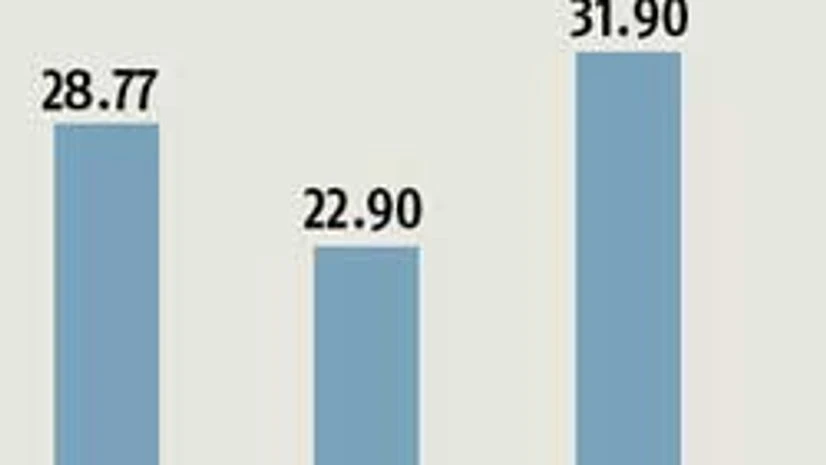Mumbai-based pharmaceuticals firm Strides Shasun's plans to divest its UK business, Shasun Pharma Solutions (SPSL), to a buyer funded by promoters is seen as detrimental to its public shareholders by a proxy advisory firm.
In May, Strides' board had cleared the plan to sell SPSL for £25 million ( around Rs 230 crore). The proposal is up for shareholder approval through a postal ballot that closes on Monday.
Proxy advisory firm Stakeholders Empowerment Services (SES) says under the scheme, in which Managing Director Arun Kumar and Executive Director Abhaya Kumar have a conflict of interest, public shareholders will be deprived of any benefit accruing from future operations of SPSL.
SES recommended a vote against in the postal ballot. DB international, SBI Arbitrage Opportunities Fund, Morgan Stanley Asia, Orbimed Asia are among top public shareholders in Strides Shasun.
The company has said the divestment follows a decision to exit non-core businesses taken earlier and even though shareholder approval was not necessary according to the regulation, it was being sought in line with its high governance standards
Strides had acquired SPSL in 2006 from French firm Rhodia. In 2011, this business had a major setback because of the failure of a key customer product in the market place and the business slipped into the red.
Since 2014, under the new management team, SPSL shifted focus from a pure Contract Research and Manufacturing Services (CRAMS) player to multiple industry CRAMS business, including services. In FY16, SPSL achieved an Ebitda (Earnings before interest, taxes, depreciation and amortisation) of £3.94 million (about Rs 37 crore).

In May, Strides' board had cleared the plan to sell SPSL for £25 million ( around Rs 230 crore). The proposal is up for shareholder approval through a postal ballot that closes on Monday.
Proxy advisory firm Stakeholders Empowerment Services (SES) says under the scheme, in which Managing Director Arun Kumar and Executive Director Abhaya Kumar have a conflict of interest, public shareholders will be deprived of any benefit accruing from future operations of SPSL.
SES recommended a vote against in the postal ballot. DB international, SBI Arbitrage Opportunities Fund, Morgan Stanley Asia, Orbimed Asia are among top public shareholders in Strides Shasun.
The company has said the divestment follows a decision to exit non-core businesses taken earlier and even though shareholder approval was not necessary according to the regulation, it was being sought in line with its high governance standards
Strides had acquired SPSL in 2006 from French firm Rhodia. In 2011, this business had a major setback because of the failure of a key customer product in the market place and the business slipped into the red.
Since 2014, under the new management team, SPSL shifted focus from a pure Contract Research and Manufacturing Services (CRAMS) player to multiple industry CRAMS business, including services. In FY16, SPSL achieved an Ebitda (Earnings before interest, taxes, depreciation and amortisation) of £3.94 million (about Rs 37 crore).

The proxy firm referred to the 2014-15 annual report, wherein the management had indicated recovery and in 2015-16 it has indeed posted results that were on expected lines. It said the loss has been converted to a healthy profit of about three per cent on sales.
"A company on turnaround phase being sold at multiple of less than six of PAT appears to be low, unless the turnaround is temporary. If that be the case, why [are] the promoters themselves buying it?" SES asked.
The price-earnings ratio of Strides was 54.7. The valuation of SPSL, which accounted for 10.3 per cent of consolidated revenue, if done based on this multiple, would have been around £62 million, the proxy firm said. Explaining the basis of the valuation in an email to SES, the company said, the high P/E multiple of 57.4 times was based on standalone EPS and not on consolidated EPS. The reported EPS numbers include impacts from exceptional items (non-recurring in nature according to financials), which magnifies the P/E multiple, it added.
The company had initially not published the valuation report for the deal on its website and required shareholders to visit its registered office for reviewing it. However, after criticism, the report by PwC has now been put up.
Experts want the company to explain why a profitable business was worth transferring to an entity owned by promoters, but not good enough to let public shareholders also reap benefits.
In response to a Business Standard email seeking comments, a Strides Shasun spokesperson said, “While the Company does not comment on an independent shareholder body's views, we wish to state that the particular resolution relates to the sale of a non-core asset announced at the time of the merger (then a loss making operation).”
The transaction does not require shareholders' approval, the company added.
"However, the company has voluntarily chosen to seek non-promoter shareholders' approval in keeping with high governance standards," the spokesperson said.

)
